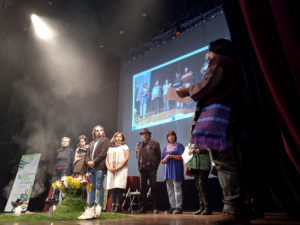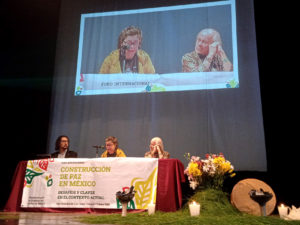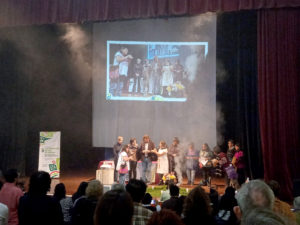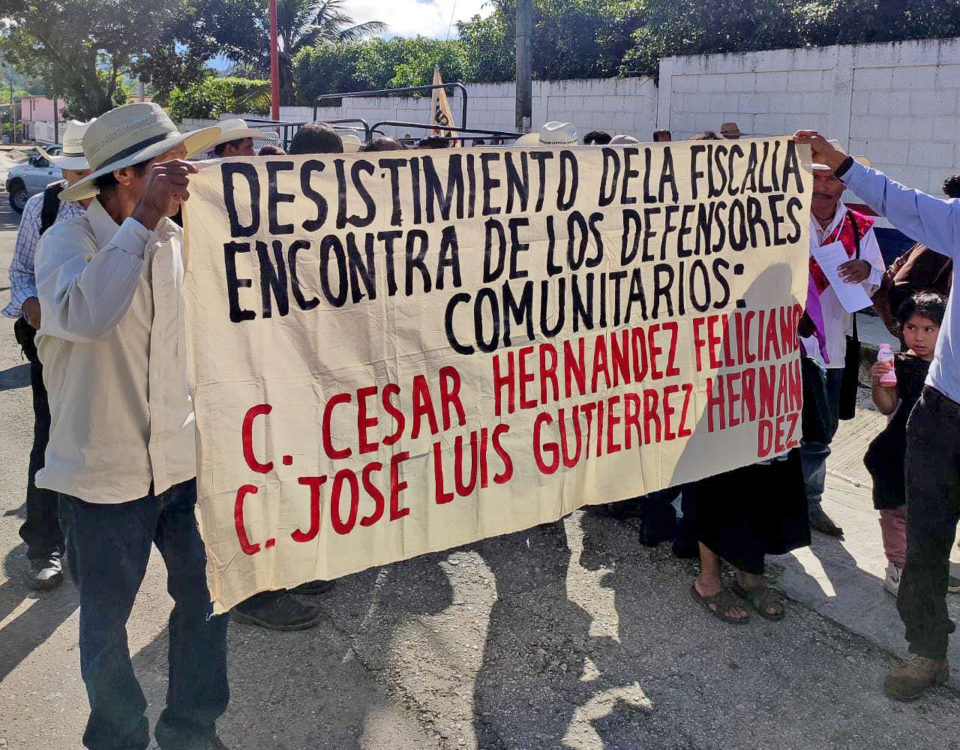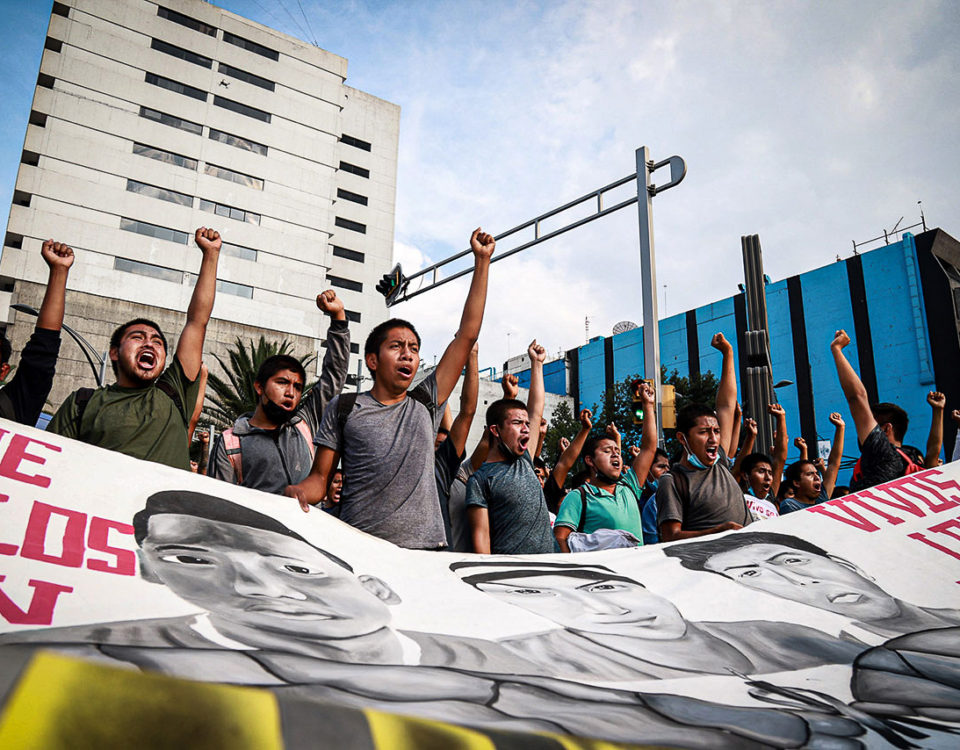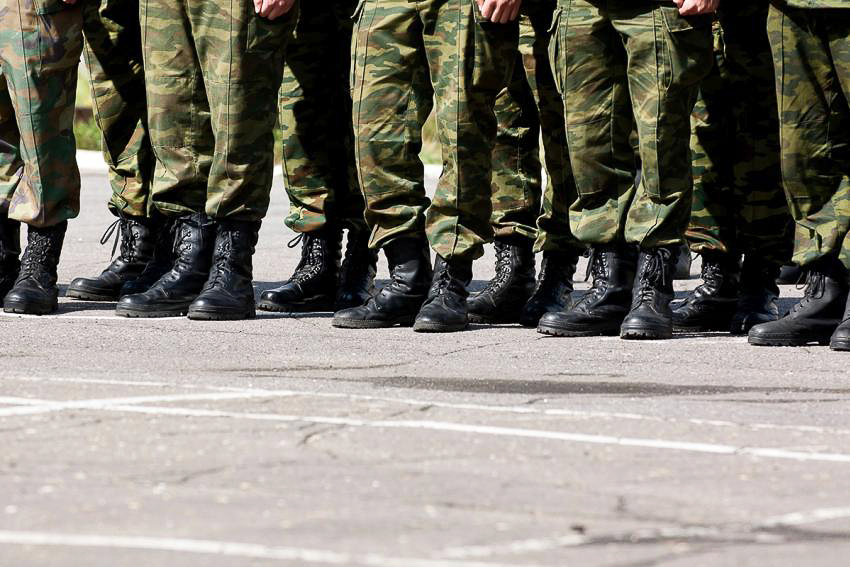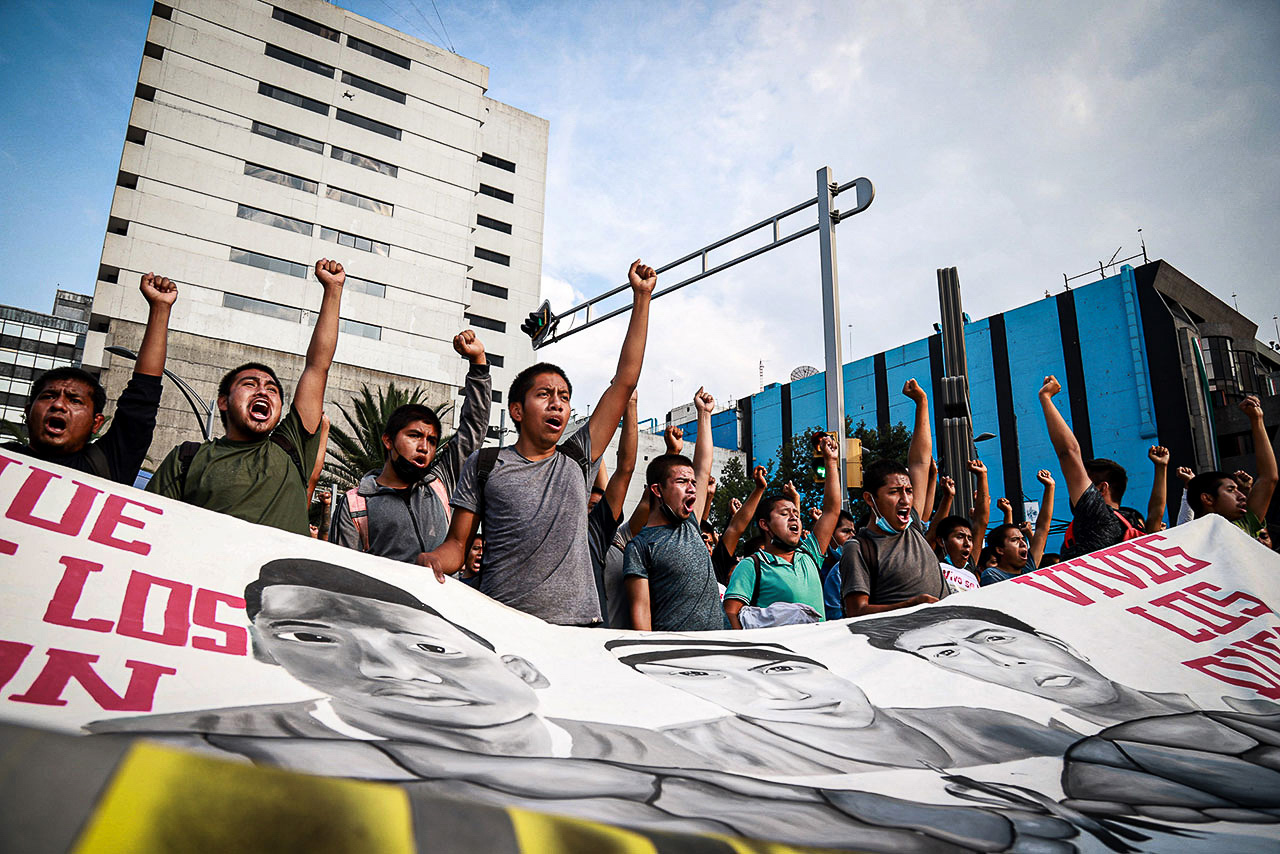
FOCUS: Forced Disappearance in Mexico, the Ayotzinapa Case
13/12/2022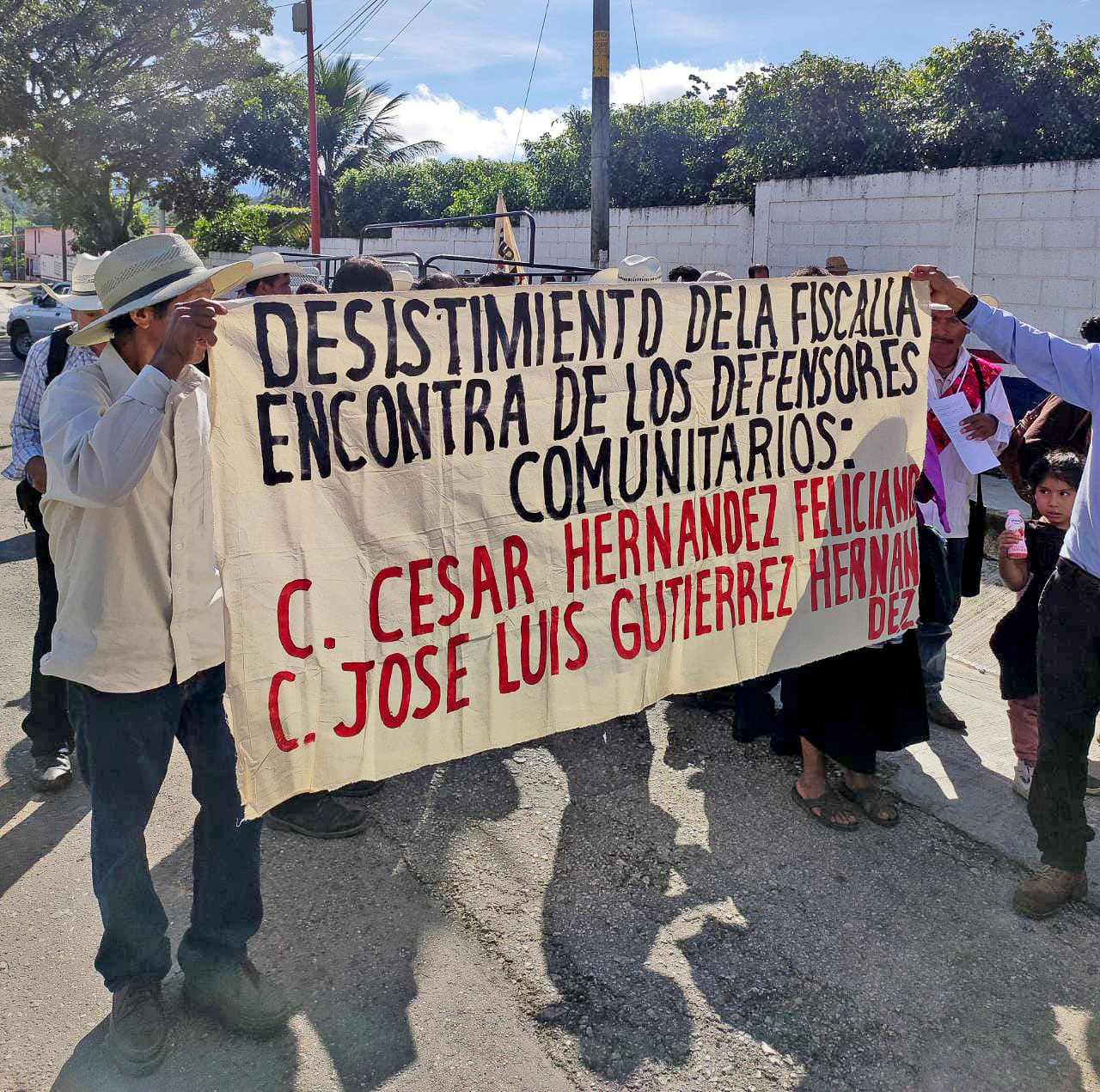
SIPAZ Activities (mid-August to mid-November, 2022)
13/12/2022We bring a message of hope and future to our broken and hurt nation. Inconvenient truths that challenge our dignity, a message for everyone as human beings, beyond political or ideological choices, cultures and religious beliefs, ethnic groups and gender.
On October 25th, 2022, the International Forum Peacebuilding in Mexico: Challenges and Keys in the Current Context, was held in San Cristobal de Las Casas, and was attended by more than 400 people in person and some 300 online. Two and a half years ago, three networks – the Global Platform for the Prevention of Armed Conflict (GPPAC), the Barcelona Forum for Peace in Mexico and the Civil Service for Peace – made up of people and organizations committed to the peace process In Mexico, decided to join forces and begin to meet online due to the deep need to find routes of hope, given the prolonged and alarming increase in violence generated by criminal groups and caused by the Mexican State itself.
Since then, the possibility of being able to meet in person was dreamed of, but the pandemic arrived, so it wasn’t until this year —together with Slamalil Kinal (network for peace in Chiapas)—, that this could be achieved. In the introduction to the event, it was noted that the crisis of violence in Mexico has not only not abated, but has deepened, reaching the alarming figures of more than 100,000 disappeared and close to 200,000 murders since 2006 to date. At the same time, an increasingly militarized country was described with a strategy to combat organized crime that has been maintained for three six-year terms of office, which has increased violence without being able to build creative alternatives that respond to both its most visible effects and to the structural causes that sustain it.
In the event, which had numerous national and international speakers, it was emphasized that in order to build peace it is not enough to continue denouncing and demanding effective responses to face the crisis; and that it is not just about describing the situation but also contributing to processes capable of transforming it, facing the polarization encouraged by political players, moving towards a vision of comprehensive peace with dignified living conditions for all.
Several speakers emphasized that it is necessary to understand what is happening in Mexico within global trends that mark the challenges for peacebuilding. They referred to different experiences influenced on many occasions by common factors from which it is possible to learn.
In particular, various speakers addressed the experience in Colombia as a mirror to understand the context in Mexico and an opportunity to rethink actions. In the Colombian case, it was seen that the internal armed conflict has not been the only violence in the country, but an element that managed to link a large part of the pre-existing violence and the violence that still exists: political, social, cultural (racism, patriarchy) as well as territorial conflicts that have existed for centuries. The conflict in Colombia is not one-dimensional, it has many factors, many layers and many players. Furthermore, Colombia has a long history of seeking peace. As an example of this, the three national pacts for peace that have been made in this country were mentioned: 1958 put an end to the partisan war; in 1991 a partial peace was signed with guerrilla groups; and, in 2016, the peace agreements with FARC (Revolutionary Armed Forces of Colombia).
Another key that was identified to advance in building a stable and lasting peace is the need to listen to the different voices involved in the conflict, since when all the players involved are not taken into account, it is very likely that violence will reappear. Time was considered as another fundamental element: peace processes in other countries show that years of work are required to advance in the transformation of a society affected by violence.
Another lesson has been the importance of delving into memory, which illuminates the present to generate and build a new dawn with hope. There was an invitation to be builders of solidarity and peace among peoples, to stop being spectators and to be protagonists of social change and not allow military responses to continue to be imposed as the only way to stop violence.
Likewise, it was emphasized that in order to talk about peace it is necessary to take into account that it is a long process and that it is rooted in territories, in the community. Several speakers stressed that when the fabric of community and cultural practices that have helped peoples throughout history to continue resisting inequality and state abandonment are strengthened, the present can be impacted. It was recognized that it is not an easy process; Sometimes it can be very painful, it requires courage, love and a radical conviction not to use violence to combat violence.
Underlining that the Latin American governments have not built institutions focused on peacebuilding, they talked about the fact that it is possible to heal hearts while transforming the structures that enable and promote violence in the territories. Several speakers pointed to the importance of rebuilding the social fabric by cultivating practices of mutual care and care for Mother Earth.
Finally, spirituality was valued as a fundamental axis to resist against the diversification and deepening of violence in different contexts. The lesson is that it is not about homogenizing society, but about learning to live together, looking at the opportunities that life offers us, uniting in the results, not judging others, but looking at hope in the midst of chaos.
“Peace requires the commitment to continue working, using dialogue, accompanying others, walking together with the certainty that God loves us, recognizing others as humans and children of God, valuing their dignity and respect for the common good”, affirmed Rodrigo Aguilar, Bishop of the Diocese of San Cristobal de Las Casas in his speech.
Beyond Mexico, Nobel Peace Prize winner Adolfo Perez Esquivel declared for his part: “We continue to believe that another world is possible, but we cannot make it alone, it is possible if we join hands and have the capacity for resistance, indignation against injustices, to transform reality. Hasta la victoria siempre.”

